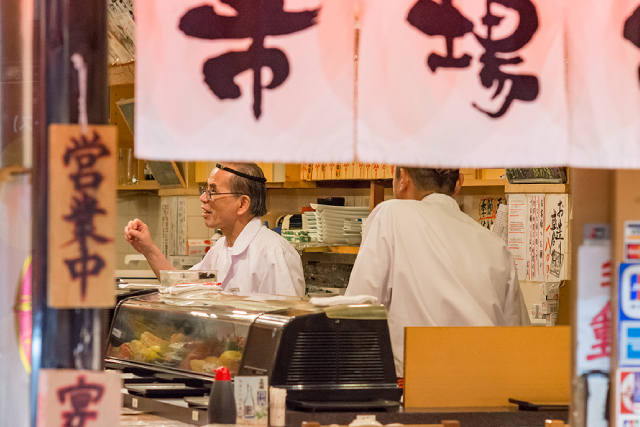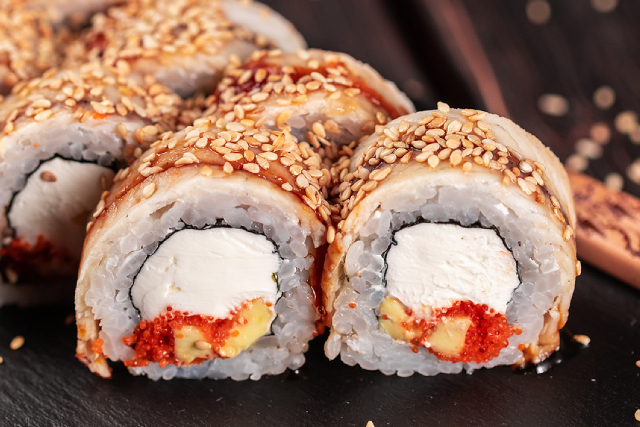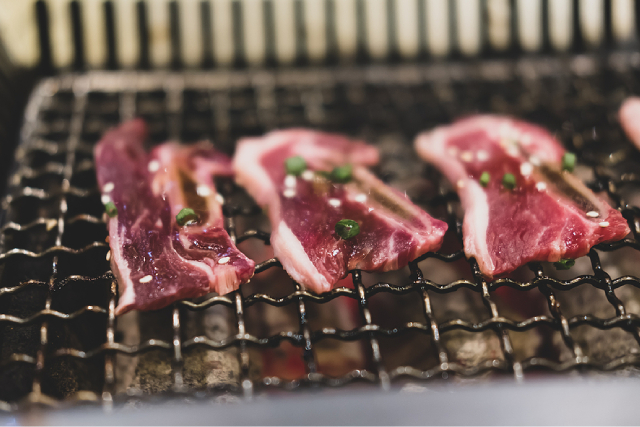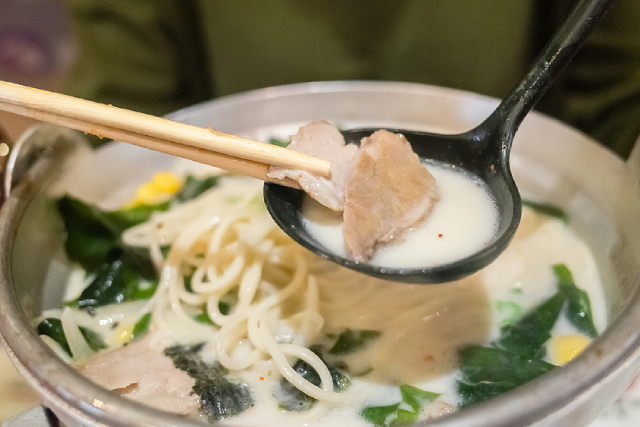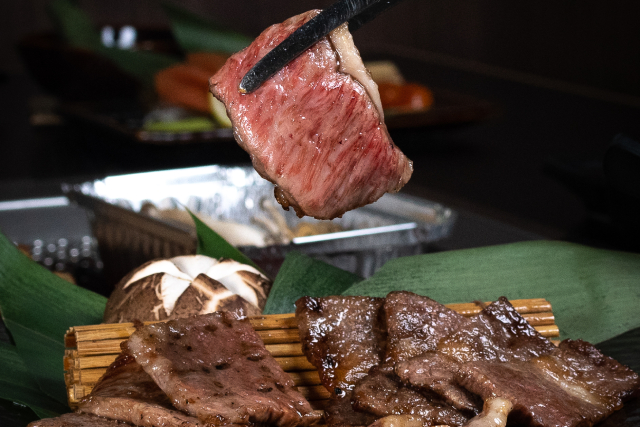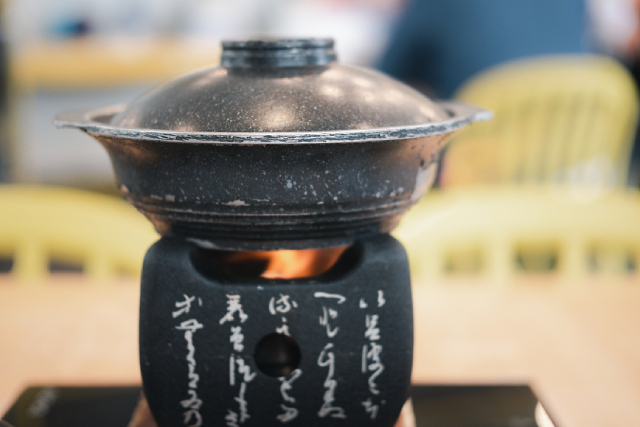
2023-Mar-Wed
Myths & Misconceptions Of Japanese Cuisine & Dining Debunked
To the uninitiated, Japanese cuisine can seem mysterious and intimidating. But with some education, you'll soon see that Japanese food is quite accessible - and delicious! Let's look at the common myths and misconceptions surrounding Japanese dining, so you can feel confident diving into your next meal.
While there are certain cultural norms to be aware of, the etiquette of dining out in Japan is similar to what you would expect in other countries.
For example, when entering a restaurant or café in Japan, it's polite to greet the staff before sitting down. Common phrases include "Konnichiwa" (Hello) or "Sumimasen" (Excuse me). And once you're served your meal, it's considered good manners to show appreciation for the food by saying "Itadakimasu!" ("I humbly receive this meal") before digging in. However, beyond that basic level of politeness, it's not expected that foreign visitors will know how to behave like natives.
There are plenty of delicious dishes on offer at a traditional sushi restaurant, but those items only make up a fraction of the vast repertoire of Japanese cuisine. In fact, many popular dishes are cooked! Some examples include sukiyaki (a type of hot pot dish), nabemono (a stew-like dish made with vegetables and protein), yakiniku (grilled meat), and tempura (lightly battered fried foods). Plus, an endless array of side dishes, such as pickles and salads, pair perfectly with cooked dishes, so if raw fish isn't your thing, no worries! There's something for everyone at a Japanese restaurant.
While it's true that some higher-end restaurants can be expensive, there are plenty of budget-friendly options too! Fast food chains such as Yoshinoya and Matsuya offer affordable meals like gyudon (rice bowl topped with beef slices) for under 500 yen ($4 - $5). And conbini (convenience stores) sell bentos (boxed lunches) for around 400 yen ($3 - $4). Many restaurants also have lunch specials where you can get a full-course meal for around 1000 yen ($9). So don't let the price deter you from experiencing all the fantastic flavours Japan offers!
Have you ever experienced a remarkable taste that lingered after each bite? That's umami! It's not just one flavour; it involves all the senses to create an amazing and unique sensation.
Professional chefs can harness this potential like experts, with temperature essential in activating those flavours locked within certain foods. Umami isn't something easily put into words but can leave its mark on your tongue as soon as you take your first bite - genuinely delicious!

In Japanese dining, you might think a bowl of miso soup is often served as an appetiser to begin a meal. Despite that, whether formal or informal, miso soup is served alongside everything - with rice, grilled veggies and tofu dishes etc.
This flavourful combination of dashi (fish or seaweed stock) and fermented soybean paste can complete the entire culinary experience. A sip here and there helps one savour all the wonderful flavours from other dishes presented at meals - be it formal gatherings with friends or casual dinners with family.
As you can see from our examples above, there is much more to explore when it comes to Japanese cuisine than just sushi. With its variety of savoury flavours and its accessible price points, there is something for everyone at a traditional Japanese restaurant.
With our guide debunking some common myths & misconceptions about dining out in Japan or any Japanese restaurant in Singapore, you should feel more prepared & excited than ever to try out authentic new tastes & flavours! Bon appétit!
Are you a lover of Japanese cuisine? Look no further than Ramen Hitoyoshi in Singapore! With various outlets located throughout the city, you can dig into a selection of classic and innovative Japanese dishes whenever you want. Visit Hitoyoshi Yakiniku for delicious wagyu dishes, Hitoyoshi Ramen & Grill Singapore for grilled Japanese food, Hitoyoshi Yoshi Sushi for fresh sushi, and Hitoyoshi Izakaya for izakaya dishes, such as fresh and premium sashimi from Japan, yakitori, sake and many more.
Myth #1: You need to know exceptional etiquette for dining in Japan or any Japanese restaurant
While there are certain cultural norms to be aware of, the etiquette of dining out in Japan is similar to what you would expect in other countries.
For example, when entering a restaurant or café in Japan, it's polite to greet the staff before sitting down. Common phrases include "Konnichiwa" (Hello) or "Sumimasen" (Excuse me). And once you're served your meal, it's considered good manners to show appreciation for the food by saying "Itadakimasu!" ("I humbly receive this meal") before digging in. However, beyond that basic level of politeness, it's not expected that foreign visitors will know how to behave like natives.
Myth #2: All Japanese food is raw fish
There are plenty of delicious dishes on offer at a traditional sushi restaurant, but those items only make up a fraction of the vast repertoire of Japanese cuisine. In fact, many popular dishes are cooked! Some examples include sukiyaki (a type of hot pot dish), nabemono (a stew-like dish made with vegetables and protein), yakiniku (grilled meat), and tempura (lightly battered fried foods). Plus, an endless array of side dishes, such as pickles and salads, pair perfectly with cooked dishes, so if raw fish isn't your thing, no worries! There's something for everyone at a Japanese restaurant.
Myth #3: It's expensive to eat out in Japan
While it's true that some higher-end restaurants can be expensive, there are plenty of budget-friendly options too! Fast food chains such as Yoshinoya and Matsuya offer affordable meals like gyudon (rice bowl topped with beef slices) for under 500 yen ($4 - $5). And conbini (convenience stores) sell bentos (boxed lunches) for around 400 yen ($3 - $4). Many restaurants also have lunch specials where you can get a full-course meal for around 1000 yen ($9). So don't let the price deter you from experiencing all the fantastic flavours Japan offers!
Myth #4: Umami is a flavour
Have you ever experienced a remarkable taste that lingered after each bite? That's umami! It's not just one flavour; it involves all the senses to create an amazing and unique sensation.
Professional chefs can harness this potential like experts, with temperature essential in activating those flavours locked within certain foods. Umami isn't something easily put into words but can leave its mark on your tongue as soon as you take your first bite - genuinely delicious!

Myth #5: Miso soup is an appetiser
In Japanese dining, you might think a bowl of miso soup is often served as an appetiser to begin a meal. Despite that, whether formal or informal, miso soup is served alongside everything - with rice, grilled veggies and tofu dishes etc.
This flavourful combination of dashi (fish or seaweed stock) and fermented soybean paste can complete the entire culinary experience. A sip here and there helps one savour all the wonderful flavours from other dishes presented at meals - be it formal gatherings with friends or casual dinners with family.
Conclusion
As you can see from our examples above, there is much more to explore when it comes to Japanese cuisine than just sushi. With its variety of savoury flavours and its accessible price points, there is something for everyone at a traditional Japanese restaurant.
With our guide debunking some common myths & misconceptions about dining out in Japan or any Japanese restaurant in Singapore, you should feel more prepared & excited than ever to try out authentic new tastes & flavours! Bon appétit!
Are you a lover of Japanese cuisine? Look no further than Ramen Hitoyoshi in Singapore! With various outlets located throughout the city, you can dig into a selection of classic and innovative Japanese dishes whenever you want. Visit Hitoyoshi Yakiniku for delicious wagyu dishes, Hitoyoshi Ramen & Grill Singapore for grilled Japanese food, Hitoyoshi Yoshi Sushi for fresh sushi, and Hitoyoshi Izakaya for izakaya dishes, such as fresh and premium sashimi from Japan, yakitori, sake and many more.
Other News
